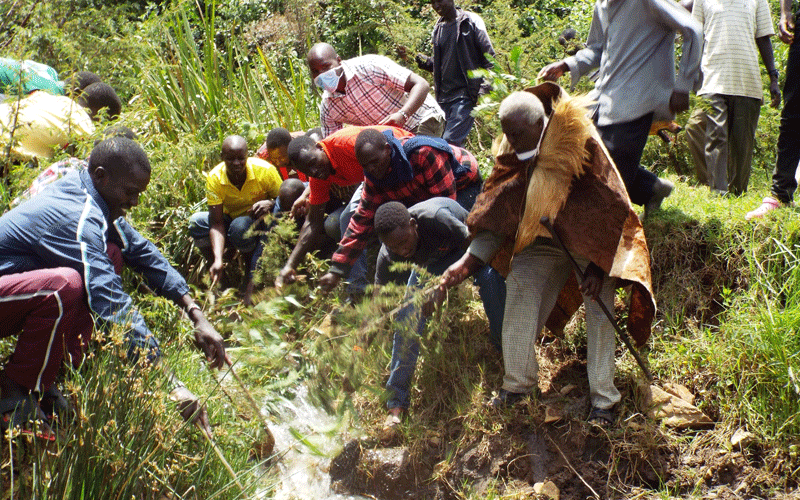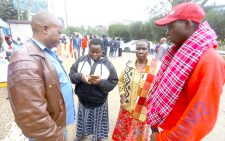With Covid, many turn to rituals for solutions

Jasmine Atieno @sparkleMine
Covid-19 has caught the country completely off guard and drove fear deep into people.
And while many have turned their hopes towards a yet-to-be-invented vaccine, traditional Kaya elders are set to perform tambiko (ritual) to drive away the pandemic.
Within the Mijikenda, two groups of elders would be involved in the ritual. The spiritual leaders, also known as Gohu, who pray for the community if there is a pandemic that has befallen them.
Then there are the diviners, who foretell everything, which is to come, whether good or bad.
Besides the pandemic, such ritual is conducted before the farming season to bring luck to farmers and a good harvest for the community, and during famines to bring down rain.
Four major ingredients are used in the tambiko: water, seeds, tobacco and the mnazi (palm wine).
All these ingredients indicate life and, especially the importance of it to the Mijikenda lifestyle.
Poured mixture
Karisa Mwarandu, Secretary General of Malindi District Cultural Association, says these are essential parts of their lives.
“Water is used to indicate life. We put the water, known as kata, in a coconut shell, and use a long straw called mrija.
The grain seeds called ludhuwa indicate food. They are ground to powder, which is called vuva, and mixed with the kata.
Tobacco is for the elders. Mnazi is a part and parcel of Mijikenda,” explains Mwarandu.
The mixture is then poured on the ground while conducting the prayers.
“As the Mijikenda, we say prayers to God above and the ancestors. That is why we say Koma tsini Mlungu dzulu meaning the ancestors who are down and God above,” he shares.
No boundary
The Mijikenda believe illnesses result from possession by malevolent spirits.
While Covid-19 might have originated from a far off land, its signs and symptoms relate to an ailment elders have discovered as a message from God. The disease in Giriama is known as Kivuti.
“When Kivuti attacked someone, it hits the lungs hardest, making it impossible to breathe and death will be very quick.
But this only happened when God was angry with humans when they had strayed from his path.
And as elders we have to perform the necessary rituals to ask for forgiveness from God,” says Mzee Mwarandu.
He adds that the prayer is not limited by boundary.
“It is impossible to only pray our people be saved. It will not make any sense, either, if we pray only that Kenya be healed and our neighbours continue to suffer.
There are a lot of things said to have caused the pandemic, others say manufactured virus in a lab, and others say eating of animals, which is a taboo.
Either way these are not practices acceptable before God, so we have to seek forgiveness on the behalf of everyone,” he adds.
While male elders conduct the ritual, female elders will perform a spiritual dance: both go hand-in-hand.
Social distancing
“There is a certain way the dances are to be performed. And this is part of the prayers.
These dances are important part of our culture, but when white people saw how it is done, they translated it as demonic or devilish, which unfortunately made some of our own people shy away from their own culture,” says the elder.
Mijikenda are not the only ones who performed such a ritual. In May, Kikuyu elders performed almost similar rituals, which involved slaughtering of a spotless goat, whose meat was burnt to ashes and pouring of fresh milk and honey in a river.
In the same month, Kipsigis elders also met to expel the virus from the world. In the ritual, sticks-representing coronavirus- were thrown into a river to be swept downstream.
Elders banked on advice from ancestors, which informed them during such a pandemic, they should meet, talk and curse the illness bringing misery to the people.
Even so, many of these elders insisted that Kenyans should keep on observing the Ministry of Health regulations that include wearing a mask, washing hands and social distancing.












